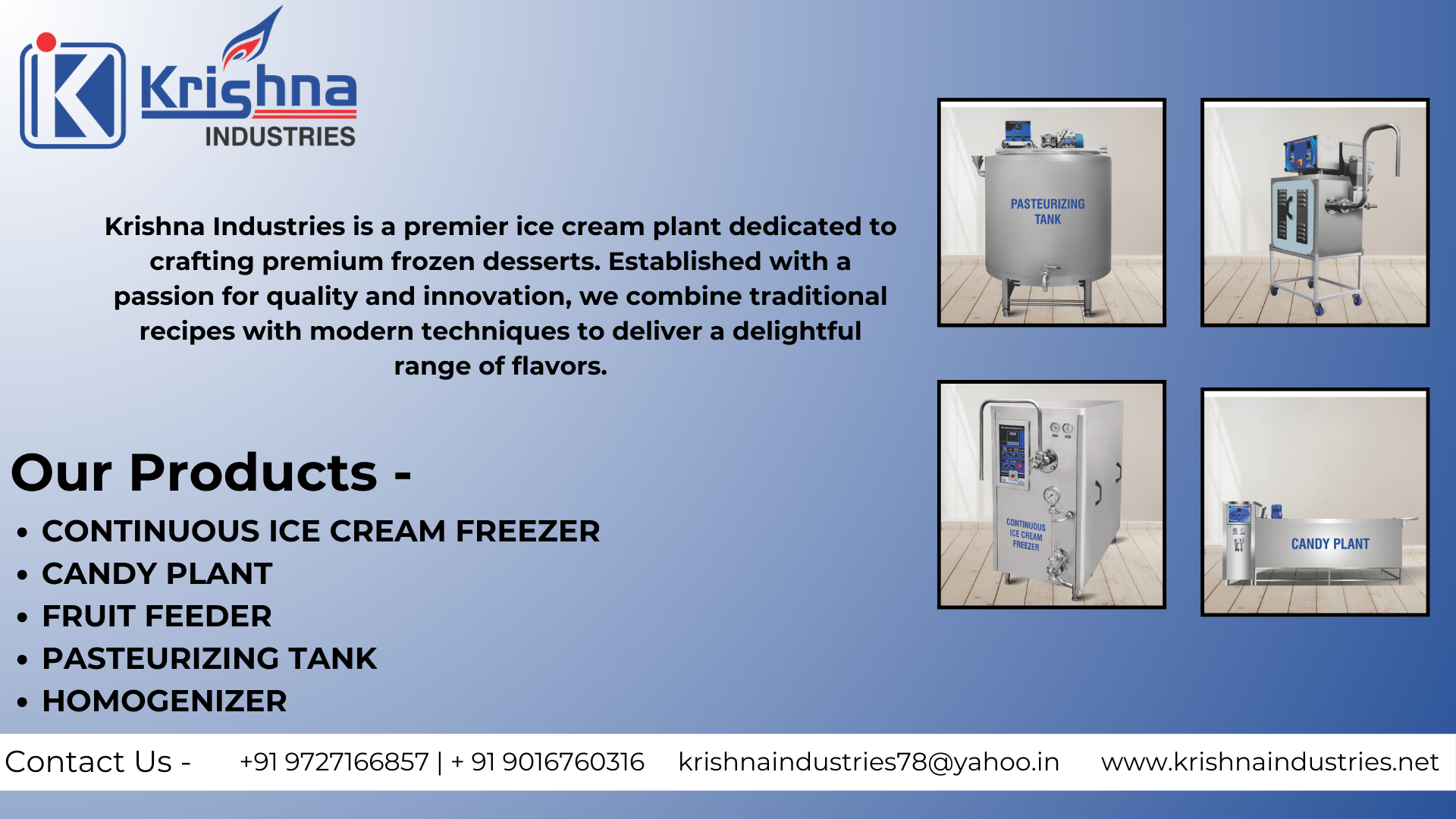Industrial Food Pasteurization Tank Manufacturer
Industrial Food Pasteurization Tank Manufacturer
Introduction
An Industrial Food Pasteurization Tank is a stainless-steel vessel used to heat food or beverages to a specific temperature to destroy harmful microorganisms without compromising the product’s nutritional quality, flavor, or texture. These tanks are vital in food processing for ensuring product safety, shelf-life extension, and regulatory compliance. Reputed manufacturers design these tanks for consistent thermal treatment, adaptable to various food products like dairy, juices, sauces, syrups, and ready-to-eat foods.
How It’s Made
Manufacturing a food pasteurization tank requires strict adherence to food safety, hygiene, and process control standards:
-
Material Selection:
-
High-quality SS 304 or SS 316L stainless steel is used to ensure corrosion resistance and hygiene.
-
-
Tank Fabrication:
-
Cylindrical or jacketed tank bodies are formed using automated welding and rolling machines.
-
-
Jacket Integration:
-
A double or triple jacket is added for indirect heating using steam, hot water, or thermal oil.
-
-
Agitation & Mixing (Optional):
-
Agitators or stirrers are added for uniform heat distribution where product consistency is critical.
-
-
Temperature Control System:
-
PID or PLC-based controllers are integrated with sensors, gauges, and actuators to maintain accurate pasteurization temperatures.
-
-
Insulation & Cladding:
Cleaning & Hygiene:
-
CIP (Clean-In-Place) provisions with spray balls or nozzles are integrated to ensure effortless sanitization.
-
-
Testing:
-
Tanks undergo hydro, temperature, and pressure testing for leak resistance, efficiency, and safety compliance.
-
Where It Is Used
-
Dairy Industry (Milk, Curd, Cream, Paneer)
-
Juice and Beverage Processing Units
-
Pickles, Sauces, and Ketchup Manufacturing
-
Confectionery and Chocolate Processing
Fruit Pulp and Puree Sterilization
-
Ayurvedic Syrup and Nutraceutical Preparations
-
Food Export and Canning Units
Uses
Extending product shelf life without preservatives
-
Maintaining nutritional and sensory quality
-
Preparing liquid or semi-solid food for packaging
-
Holding pasteurized product before filling or storage
Key Features
-
Food-grade SS304/SS316L construction
-
Jacketed or coil-based indirect heating system
-
Working capacity: 100 L to 10,000+ L
-
PLC or digital PID temperature control
-
Optional agitation for viscous or thick products
-
Hygienic design with CIP/SIP compatibility
-
Insulated outer wall for thermal efficiency
Safety valves, pressure gauges, and over-temperature protection
Importance
Pasteurization is essential in food processing to ensure microbiological safety, regulatory compliance, and consumer health. The pasteurization tank acts as a core component in preserving the quality and safety of processed foods, especially in large-scale industrial setups where hygiene and efficiency are non-negotiable.
Advantages
-
Eliminates harmful microorganisms and pathogens
-
Preserves food texture, taste, and nutrition
Energy-efficient and uniform heating
-
Easy to clean and sanitize
-
Adaptable for a wide range of food products
-
High capacity for bulk food processing
Significance
In the era of processed and packaged foods, pasteurization is not just a process—it's a quality assurance standard. Industrial pasteurization tanks are indispensable in enabling safe, large-scale food production with consistent quality. Leading manufacturers contribute to the growth of India's food industry by supplying technologically advanced and export-grade pasteurization solutions.
Why Choose an Industrial Food Pasteurization Tank Manufacturer in India?
-
Advanced manufacturing infrastructure with hygienic standards
-
Deep understanding of food-grade material compatibility
Proven expertise in dairy, beverage, and processed food sectors
-
Energy-efficient, automation-ready designs
-
Pan-India delivery and export capability
-
Reliable service, spare parts, and maintenance support
Top 10 FAQs
-
Q: What is the temperature range for food pasteurization?
A: Generally between 60°C and 95°C depending on the product. Q: Can one tank process multiple products?
A: Yes, with proper cleaning and changeover procedures, multiple products can be processed.-
Q: Is the tank compatible with automation systems?
A: Yes, PLC and SCADA integration is available. Q: What material is used for construction?
A: Food-grade SS 304 or SS 316L stainless steel.-
Q: How is the temperature controlled?
A: PID or PLC-based controllers with digital displays and sensors. -
Q: Can it be used for high-viscosity products?
A: Yes, with optional agitators or scrapers for uniform mixing. -
Q: Is the tank suitable for export food production?
A: Yes, they comply with food safety and export-grade hygiene norms. -
Q: What type of heating is used?
A: Indirect heating using steam, hot water, or thermal fluid. -
Q: Is CIP cleaning system included?
A: Most industrial models come with built-in CIP capability. -
Q: What is the typical delivery time?
A: Standard models: 3–5 weeks; customized tanks: 5–8 weeks.
Conclusion
Industrial food pasteurization tanks are vital to producing safe, long-lasting, and high-quality food products. Choosing the right manufacturer ensures hygienic design, thermal efficiency, and reliable automation. Indian manufacturers, especially in Ahmedabad and other industrial zones, offer world-class solutions at competitive prices, making them the go-to choice for food processing units looking to scale with safety and quality.
Gmail:-krishnaindustries78@yahoo.in
Website:-https://www.krishnaindustries.net/

